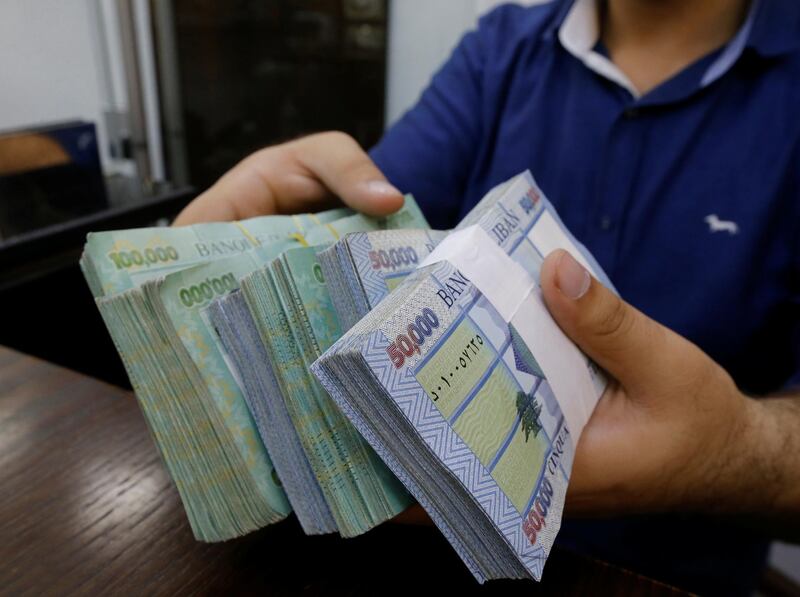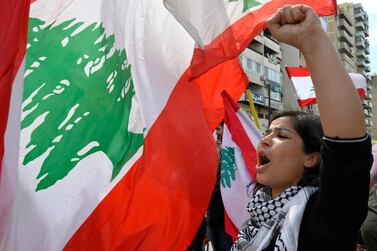Lebanon’s private sector economy witnessed a “record deterioration” last month, as lockdown measures to control the spread of the coronavirus placed further put pressure on an economy that has suffered months of turmoil.
The BLOM Lebanon PMI index, a gauge that measures the strength of the private sector economy, hit its lowest level on record in April falling to 30.9, down from 35.0 in March. A reading above 50 indicates economic expansion and below 50 contraction.
The decline was the result of a collapse in output, with exports tumbling as businesses also cut back their own purchases.
“The impact of Lebanon’s coronavirus lockdown fully materialised in April. Businesses are facing sharp economic uncertainties while consumer demand weakened,” Sarah Hadchiti, research analyst at Blominvest Bank, said.
“Moreover, the Lebanese pound accelerated its depreciation and reached unprecedented levels against the dollar, nurturing hyperinflation. On the monetary level, the central bank issued a series of circulars aiming to ease the pressure on the dollar and protect the purchasing power of citizens. These measures have to be complemented by [a] reform plan and support from international financial institutions,” Ms Hadchiti said.
Lebanon formally requested assistance from the International Monetary Fund last week after months of widespread protests about its economic plight. The country's debt ballooned to $92 billion (Dh337.6bn) at the end of January, giving it one of the highest debt-to-gross domestic product ratios in the world. The country's GDP is also set to contract 12 per cent this year, according to the IMF.
The crisis also placed strains on Lebanon's foreign exchange reserves, causing a dollar shortage and a gradual move away from its dollar peg. The Lebanese pound has been pegged to the US dollar at the official rate of 1,505.70 Lebanese pounds since 1997, but finance minister Ghazi Wazni said in a speech on Wednesday that the government plans to introduce a flexible exchange rate that fixes the pound at 3,500 to the dollar. The Blom PMI survey states the Lebanese pound is trading in the parallel market at 3,800 to the dollar – a 60 per cent discount to the official rate.
The survey found that businesses were "severely pessimistic" about the outlook for the next 12 months.
"Sentiment fell to an unprecedented level, with the vast majority of firms expecting a decline in business activity over the next year," it said.
Purchase prices rose steeply and higher material costs more than offset a record fall in wages, the survey found.
"A fall in the pound will have the immediate impact of raising domestic prices, and the government estimated inflation could rise to more than 50 per cent year-on-year this year. This comes at a time when public anger is already boiling over," London-based Capital Economics said in a note on Friday.
"That said, a weaker currency will improve Lebanon’s external competitiveness and, by boosting exports and dampening imports, help to narrow the large current account deficit."








